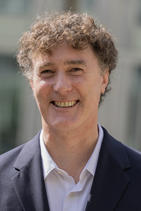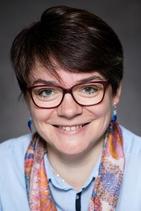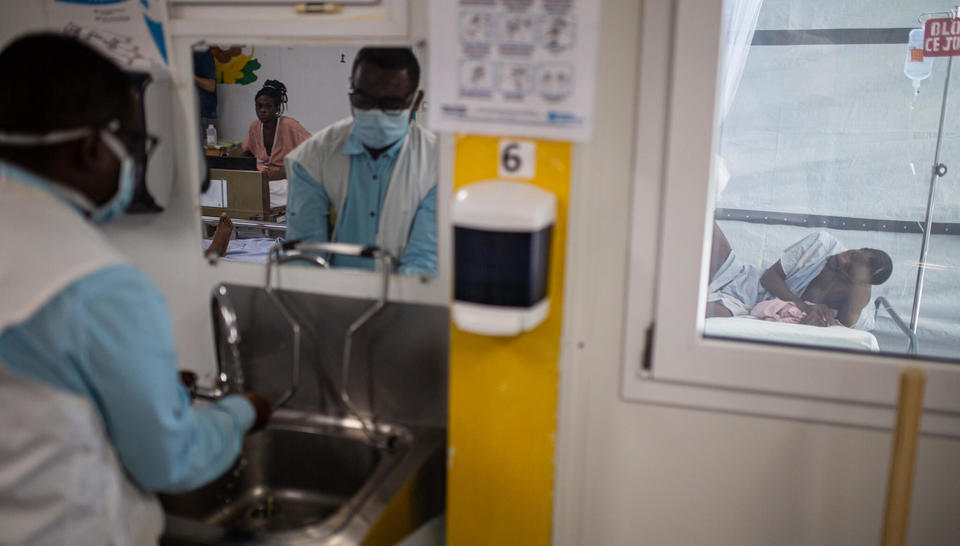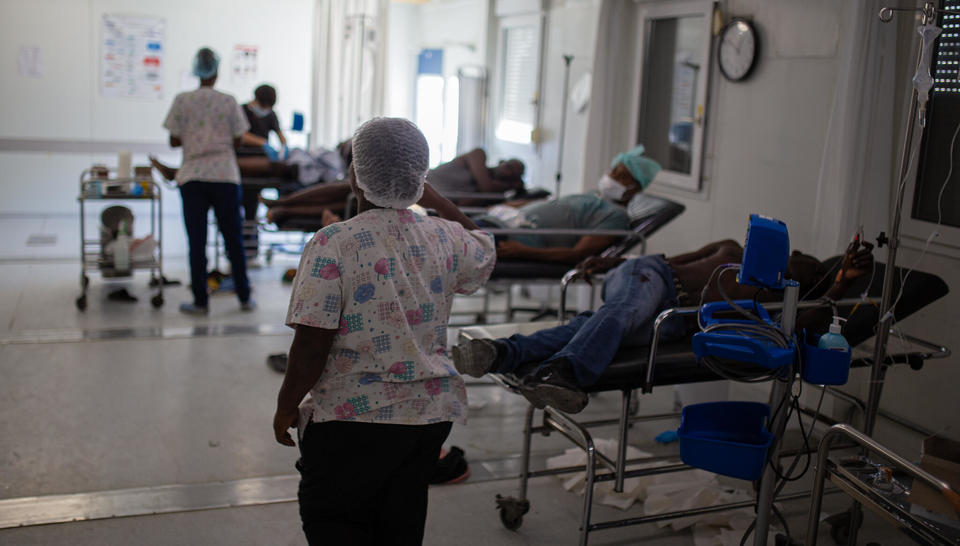The collaboration between Médecins Sans Frontières and the Veolia Foundation has a long history. Since 2012, the two partners have been working together in a variety of contexts: humanitarian emergencies following natural disasters, the fight against epidemics, the management of health centers... It is this last subject that has mobilized several Veolia experts in response to a problem of contamination of water networks in Haiti.
They are based at the Aix-en-Provence branch of OFIS, a subsidiary of SARP (Veolia), but work at two care centers run by Médecins Sans Frontières (MSF) in Haiti. Jean-Michel Mathiot, Project Manager, and Benjamin Midena, Sanitation Network Expertise Manager, have become key contacts for Marine Mudry, Water, Hygiene and Sanitation Referent at MSF. In Haiti, the NGO, which runs hospitals in the Tabarre and Drouillard districts, is experiencing problems with Pseudomonas aeruginosa.
"This fairly common bacterium lodges itself in the biofilm of water pipes, which makes it difficult to eradicate," explains Jean-Michel Mathiot. Involved since his first mission with Médecins du Monde in the Philippines for the Veolia Foundation, this engineer is taking the Veoliaforce volunteer training course in 2022. On this occasion, he met Marine Mudry, who came to present MSF's activities and its scope of responsibility in water, hygiene and sanitation. The contact continued a few weeks later when Romain Verchère, in charge of the Veolia Foundation's partnership with MSF and its activities in Haiti, formally approached OFIS about sponsoring skills. The general management of this SARP subsidiary agreed, and the analysis work began. They already had a good knowledge of the problem," recalls Jean-Michel Mathiot. Several actions had been taken, but without succeeding in putting a complete stop to the contamination. By exchanging views with us, the idea was to unblock situations, find solutions and validate actions that represented expenses for MSF."

To ensure that the best options were proposed, Jean-Michel Mathiot brought another OFIS expert, Benjamin Midena, into the loop. Analytical monitoring models are drawn up, the Foundation supports the approach by sending a flowmeter to Haiti, and a sampling plan is proposed. "We developed a sampling strategy to determine the perimeter of the contamination", explains Benjamin Midena.
Opposite her, Marine Mudry sends plans and photos to help the experts understand the layout of the network. Benjamin Midena also calls on a manufacturer he knows in the West Indies to help him understand the climatic conditions in Haiti. "Technically, being in a tropical zone changes things a bit. But we had experience of working in New Caledonia (Nouméa), which enabled us to adapt."

A few months later, Benjamin Midena observes that "cooperation was fluid, enabling us to be fairly reactive, to be able to devote a little time on a regular basis, without determining upstream a number of man-days that might have been difficult to articulate with the daily workload."
"It's a whole chain of expertise that has been set in motion, with total commitment from every link," notes Romain Verchère, who followed the Veolia Foundation's exchanges.
The aim is to set up a treatment protocol, whether one-off or ongoing. Exchanges are still ongoing, and Veolia experts are continuing their mission with a watchful eye on implementation and the requirement to remain available to remove any technical stumbling blocks.
OFIS sanitary engineering
Sanitary engineering covers the management of health risks linked to the environment in fields related to the natural environment, but also to human, agricultural or industrial activities (water, air, housing, waste, soil). At OFIS, our expertise is mainly focused on water and air quality.
En savoir plus
Médecins Sans Frontières presence in Haiti (as of March 6, 2024) [IN FRENCH]
Photos © MSF/Alexandre Marcou




